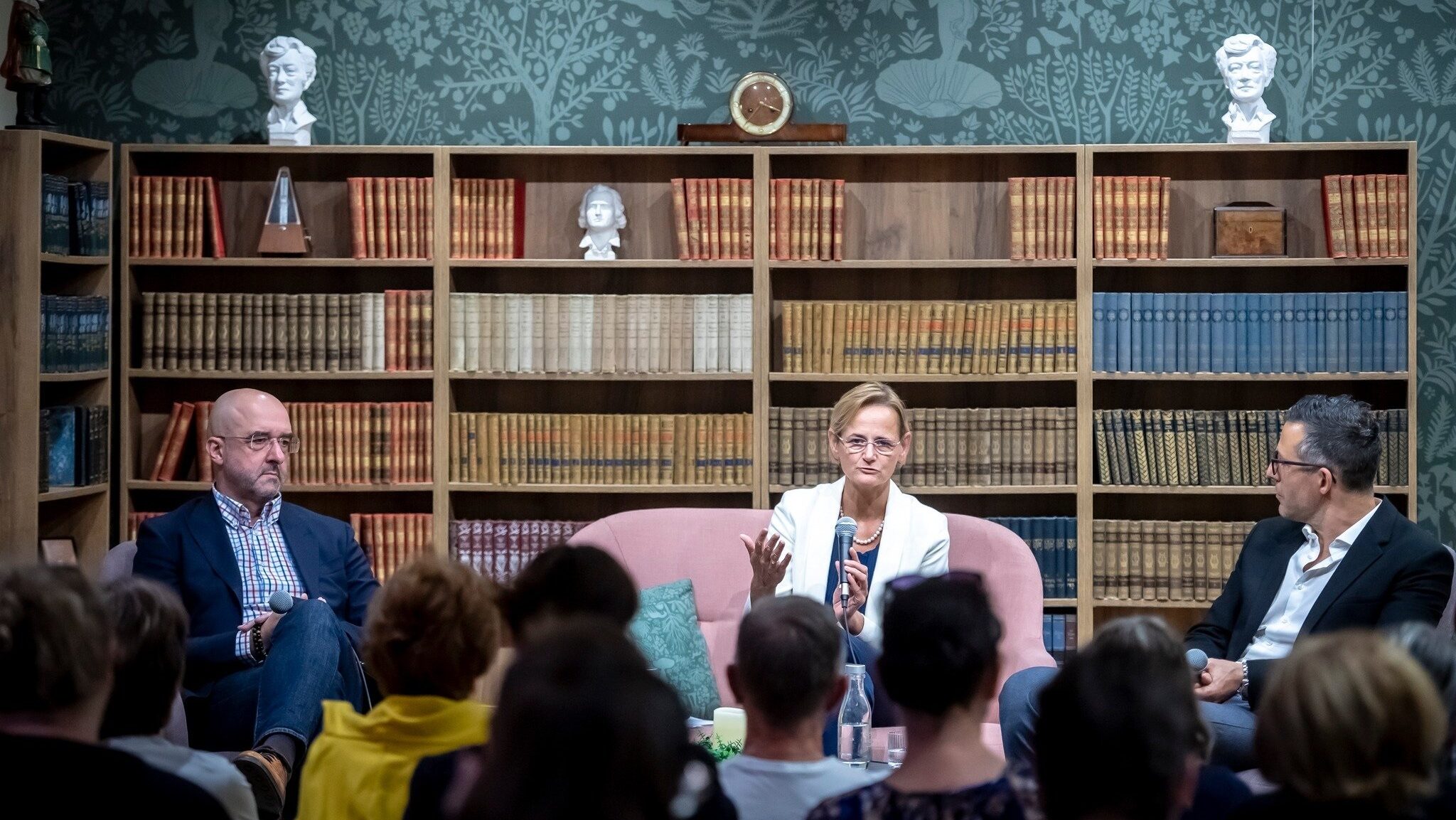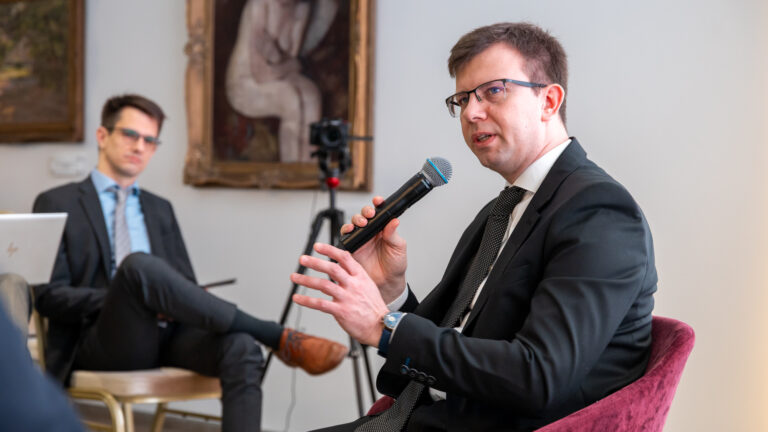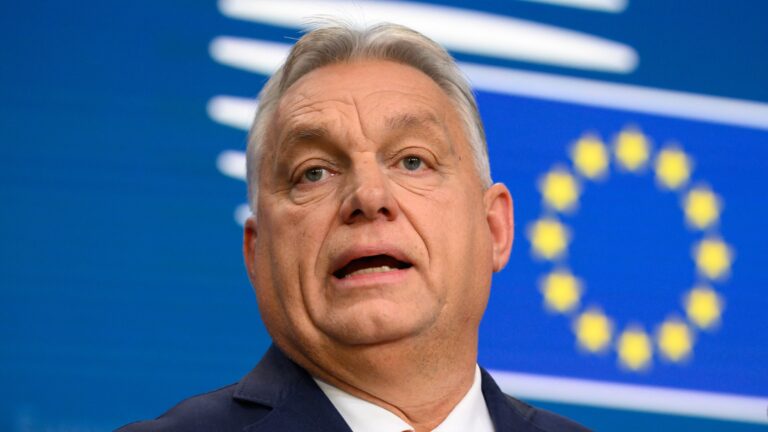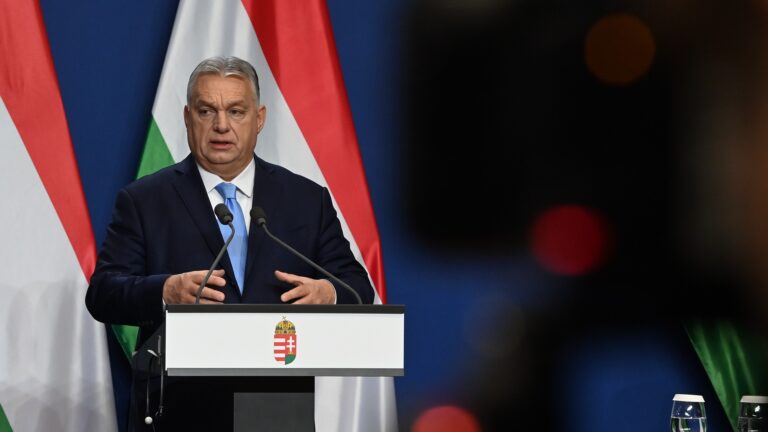On Thursday evening, Zoltán Kovács, Hungarian State Secretary for International Communication and Relations and Government Commissioner responsible for the preparation and implementation of the operational tasks of the Hungarian EU Presidency, and Enikő Győri, Fidesz MEP for Patriots for Europe (PfE) European parliamentary political group participated in a panel discussion at the Scruton VP café in Budapest. They covered the main priorities of the Hungarian EU Presidency, its achievements to date, and the professional work happening behind the scenes to support its objectives.
Zoltán Kovács stressed that one-third of the approximately 250 events planned for the Hungarian EU Presidency have already been completed. He highlighted that September and October will be especially busy in Budapest, with various meetings involving EU delegations, ministers from member states, and even heads of state and government scheduled during this period. As an example of key events, he mentioned the ongoing ECOFIN meeting of finance ministers, which includes the participation of President of the European Central Bank (ECB) Christine Lagarde. ‘This clearly shows that there is no boycott against Hungary,’ Kovács remarked. He underscored that, despite media narratives attacking Hungary, work is advancing on crucial issues for Europe’s future, such as agriculture, the continent’s waning competitiveness, and the stability of the European financial system, as these matters affect everyone.
Enikő Győri echoed this sentiment, noting that the majority of EU member states prefer to operate on the basis of common sense. She pointed out that only ‘hawkish countries’—the Baltic states, Nordic members, and Poland—are pushing to ‘punish’ Hungary in response to Hungarian Prime Minister Viktor Orbán’s peace mission in early July. Győri also highlighted that the professional reputation of the Hungarian EU Presidency is strong, with praise for the work accomplished so far circulating in the corridors of Brussels.
In this regard, Zoltán Kovács stated that Hungary, acting as a true ‘honest broker’, is doing everything it can to ensure that Member States can make progress on the issues they consider important. He highlighted that the Hungarian presidency has identified seven priority areas, including migration, the green transition, and the state of European agriculture. He emphasized that the main overarching priority is the promotion of European competitiveness, which ties all these areas together. ‘The Hungarian presidency is focusing on finding real answers to real problems,’ the state secretary concluded.
‘Győri also highlighted that the professional reputation of the Hungarian EU Presidency is strong, with praise for the work accomplished so far circulating in the corridors of Brussels’
As the panellists noted, two recent reports—one by former Italian Prime Minister and former ECB President Mario Draghi, and the other by Enrico Letta, also a former Italian Prime Minister and currently the EU rapporteur on the future of the single market—offer a sobering outlook on Europe’s future. They pointed out that these reports highlight the urgent need for immediate action to address the challenges ahead.
Zoltán Kovács and Enikő Győri also addressed current issues, including the reintroduction of border controls announced by the German federal government earlier this week, a decision made by Olaf Scholz’s cabinet in response to increased migration pressure. Kovács warned that reinstating border controls within the Schengen area could have serious consequences, potentially affecting European competitiveness. He underlined that the free movement of people and goods within the Schengen zone is a fundamental pillar of the continent’s economic growth and competitiveness.
Enikő Győri stressed that, rather than reinstating internal border controls, the focus should be on strengthening the protection of the EU’s external borders. She pointed out that none of the member states can realistically meet the migration quotas recently reintroduced by the new migration pact, calling it ‘unworkable’ and noting that ‘everyone knew that it doesn’t work.’ Zoltán Kovács added that the migration issue is not, as the left perceives it, a humanitarian or human rights matter, but rather a security, competitiveness, and economic issue, which should be addressed with this perspective in mind.
The two politicians agreed that the EU’s over-regulation hampers the competitiveness of the bloc in several key sectors, including agriculture and industry, particularly the automotive industry. They emphasized that excessive regulation creates obstacles, making it difficult for these sectors to thrive and compete on a global scale.
Related articles:








